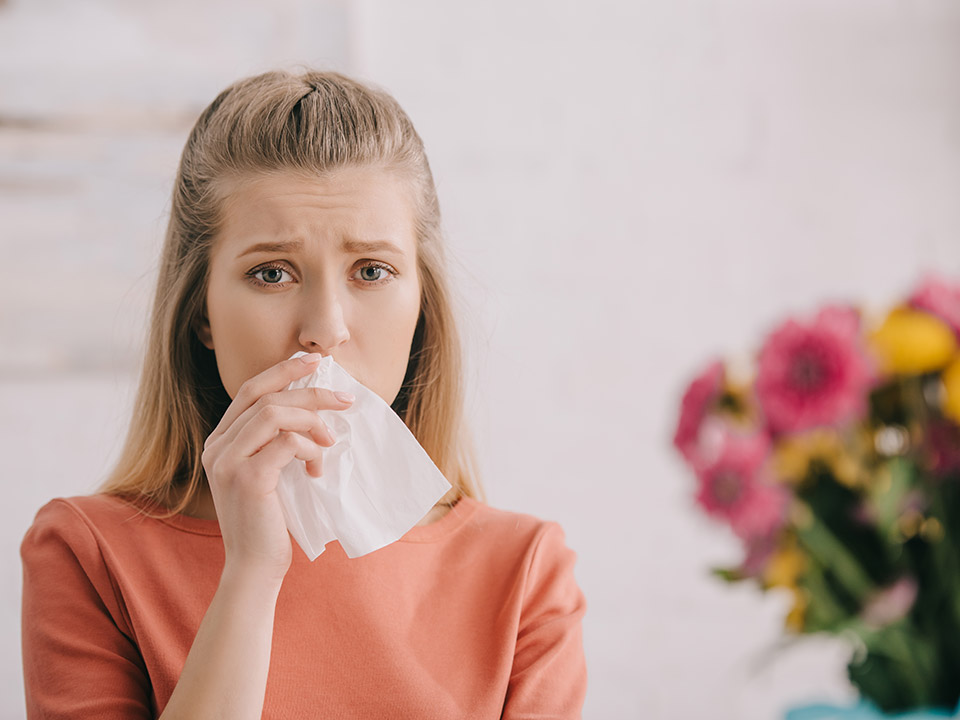How To Prepare Your Eyes For Seasonal Allergies

For some, the start of a new season can be exciting. But for others, it means irritation, redness, and a lot of itching. Seasonal allergies are common, especially in the springtime. Dust, pollen, dander, and other allergens casually float through the air triggering multiple sinus symptoms and eye irritations.
It means months of constant eye irritation, affecting work and social life. But it does not always have to be this way if you prepare adequately. Most people now know that you can make allergy season easier on your eyes if you prepare adequately.
That is where we come in. The information below outlines practical advice and tips on preparing yourself for allergy seasons so that your work and social life do not suffer. So keep scrolling for the best advice before the symptoms start raging.
Tips For Allergy Season
Learn about your triggers
First, understand what triggers your eye allergies. Some people develop symptoms after exposure to dust, pollen, and others to mold. You need to understand what triggers you to avoid them come allergy seasons.
Consider when your allergies flare up the most. Is it after a picnic in the park or quality time with your pet? Is it during cleaning or after being in your garage for some time? Learn about your triggers and take steps to avoid them. You can also share this helpful information with your eye doctor.
Mark locations that trigger your symptoms
Next, make note of locations that trigger your symptoms. Avoid places with many plants and flowers, such as public parks, if pollen gives you eye irritation, redness, and itching. Similarly, avoid flower shops and botanical gardens.
If it is mold spores, avoid being in your garage for too long, and do not use the HVAC units until you are sure they are clean. Start practicing now to be actively avoiding these places by the time allergy season arrives.
Purchase a good pair of sunglasses
A good pair of sunglasses can keep allergens from eye contact. Mold spores, dust, and even pollen are so tiny you cannot see them with the naked eye. They land on your eyelashes and even eye surfaces, triggering itching, redness, and irritation.
Wearing sunglasses can help prevent this while keeping your eyes safe from sun exposure. Ensure you purchase a good pair for roaming outside. They should protect against harmful UV rays for adequate sun protection too.
Stock up on allergy medications
Next, ensure that you stock up on effective allergy medications. By now, you know what works for you when allergies take hold. Ensure that you have the proper medications in the house, workplace, and other places you may frequently visit. You should also carry them in your bag to prevent flare-up on the go.
If you are unsure of what allergy medications are suitable, consult your primary care doctor and eye doctor for the best treatment options. Follow prescription instructions to avoid overdosing.
Start taking allergy medication
And while you are at it, experts recommend taking the allergy medication before allergy season. This works the same way as taking allergy medication before leaving the house or participating in activities that trigger your symptoms.
Being proactive with allergy medications helps keep symptoms under control when the allergens start to travel in the air. When the symptoms come, you will notice that they will be less challenging to deal with. Always consult with your eye doctor to ensure you take the right amount.
Practice less facial touch
Next, you need to practice touching your face less. When eye allergies set in, the temptation to scratch and rub your eyes increases. But scratching and rubbing your eyes is not good since you can introduce bacteria that cause eye infections. Therefore, you will need to avoid this.
The best way is to practice early. Practice not touching your face now, especially if you do it as a nervous habit. Avoid rubbing your eyes and scratching the base of your eyelashes.
Clean air conditioning units
Most people prefer using HVAC units over opening doors and windows during allergy seasons, as letting in the air will bring allergens indoors. However, these units could be contributing to your eye allergies if you have not cleaned them well.
They harbor dust, pet dander, and mold spores which can spread around the house when you turn them on. Therefore, clean the units before using them to heat or cool your home during allergy season. You can hire a professional service if you do not want to trigger symptoms early.
Purchase a dehumidifier
Next, you should get a dehumidifier if your trigger is mold spores. Mold grows in damp, warm spaces such as your bathroom, under the sink, and in the garage. If the season comes with high humidity, expect mold spores to trigger your allergies at home.
A dehumidifier does as its name describes. This useful gadget will make the air indoors less humid, significantly preventing mold growth, thus making allergy season less harmful to your eyes. Purchase an excellent dehumidifier to work adequately in your home.
Change your bedding
You should do this right before allergy season, then continue to do it throughout. Changing your bedding is beneficial since the air can introduce allergens to your space. Most people do not know it, but the dust on your pillowcase or sheets makes your eyes water and sinuses close up. Therefore, change your beddings before the season starts and make it a routine.
Adopt green tea
Drinking green tea every day before and then during allergy season will improve your body’s ability to fight allergies. Green tea has several compounds that make it anti-allergenic while blocking receptors that produce allergic reactions. Therefore, ensure you adopt green tea because it is also beneficial for general body health.
Get face masks
And lastly, because the COVID-19 pandemic is still active, mask-wearing is advised. You can take advantage of wearing a mask when you go outside to prevent contact with allergens.
You will not look strange while protecting yourself from pollen and other allergens. Ensure that you stock up on high-quality masks and always wear them when going outside or when you know you will be exposed to allergens.




